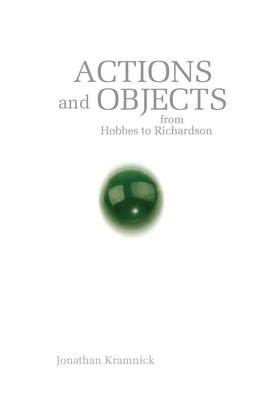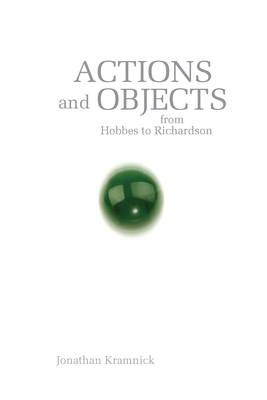
- Afhalen na 1 uur in een winkel met voorraad
- Gratis thuislevering in België vanaf € 30
- Ruim aanbod met 7 miljoen producten
- Afhalen na 1 uur in een winkel met voorraad
- Gratis thuislevering in België vanaf € 30
- Ruim aanbod met 7 miljoen producten
Zoeken
€ 225,95
+ 451 punten
Uitvoering
Omschrijving
How do minds cause events in the world? How does wanting to write a letter cause a person's hands to move across the page, or believing something to be true cause a person to make a promise? In Actions and Objects, Jonathan Kramnick examines the literature and philosophy of action during the late seventeenth and early eighteenth centuries, when philosophers and novelists, poets and scientists were all concerned with the place of the mind in the world. These writers asked whether belief, desire, and emotion were part of nature--and thus subject to laws of cause and effect--or in a special place outside the natural order. Kramnick puts particular emphasis on those who tried to make actions compatible with external determination and to blur the boundary between mind and matter. He follows a long tradition of examining the close relation between literary and philosophical writing during the period, but fundamentally revises the terrain. Rather than emphasizing psychological depth and interiority or asking how literary works were understood as true or fictional, he situates literature alongside philosophy as jointly interested in discovering how minds work.
Specificaties
Betrokkenen
- Auteur(s):
- Uitgeverij:
Inhoud
- Aantal bladzijden:
- 320
- Taal:
- Engels
Eigenschappen
- Productcode (EAN):
- 9780804770514
- Verschijningsdatum:
- 30/08/2010
- Uitvoering:
- Hardcover
- Formaat:
- Genaaid
- Afmetingen:
- 155 mm x 229 mm
- Gewicht:
- 544 g

Alleen bij Standaard Boekhandel
+ 451 punten op je klantenkaart van Standaard Boekhandel
Beoordelingen
We publiceren alleen reviews die voldoen aan de voorwaarden voor reviews. Bekijk onze voorwaarden voor reviews.











